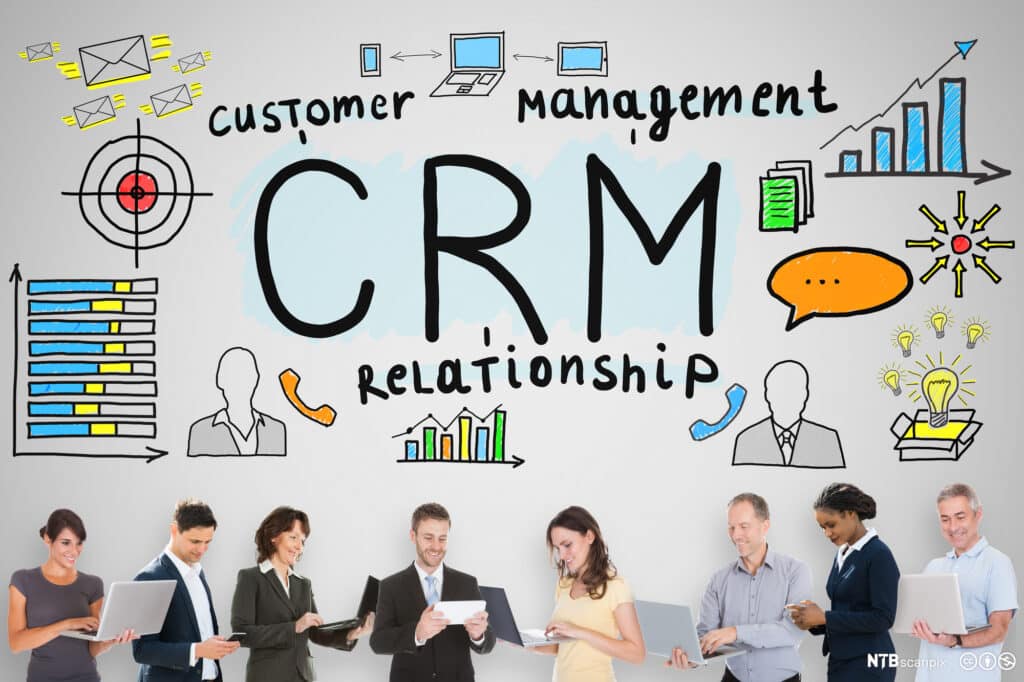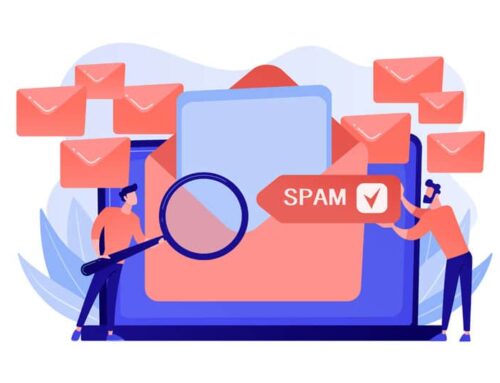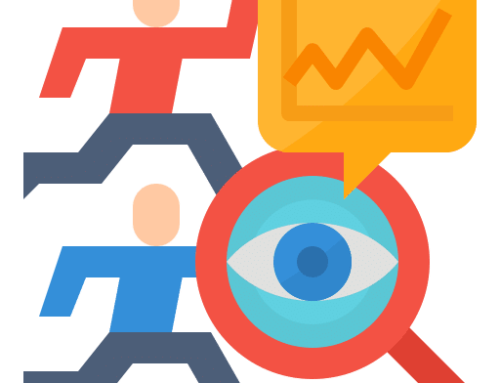Harnessing CRM for Australian Businesses: A Strategic Approach to Customer Relationship Excellence
In a bustling business environment like Australia, with key markets in Brisbane, Melbourne, and the Gold Coast, understanding and leveraging Customer Relationship Management (CRM) is vital. CRM is not just a tool; it’s a comprehensive strategy for nurturing long-lasting customer relationships. This in-depth article will explore CRM’s significance, benefits, and practical implementation for Australian businesses.
Understanding CRM: What It Is and Why It Matters
CRM systems are sophisticated tools designed to track and manage customer interactions. By consolidating customer information into a single database, businesses can create detailed profiles that include contact information, purchase history, and preferences. This holistic view of the customer enables more personalized and effective interactions.
The Role of CRM in Gathering Customer Information
A Customer Relationship Management (CRM) system plays a crucial role in collecting and organizing a wide range of customer data. This data includes:
- Basic Personal Information: CRM systems capture and store important details such as customer names, addresses, and contact information. This information forms the foundation for building personalized relationships with customers.
- Detailed Purchase History: CRM systems enable businesses to track and analyze customer purchase behaviors in depth. This includes information on the frequency of purchases, preferred products or services, and even transaction values. Such insights help businesses understand customer preferences and tailor their offerings accordingly.
- Interaction Logs from Various Channels: CRM systems record and consolidate customer interactions from multiple channels like email, social media, and customer service calls. This comprehensive view of customer communication allows businesses to provide seamless and consistent support, ensuring a positive customer experience.
- Feedback and Survey Responses: CRM systems provide a platform to collect and analyze customer feedback and survey responses. By capturing customer opinions and preferences, businesses can identify areas for improvement and make informed decisions to enhance their products or services.
- Browsing and Social Media Engagement Data: For online customers, CRM systems can collect and analyze data related to browsing behavior and social media engagement. This information helps businesses understand customer interests, preferences, and online behaviors, enabling targeted marketing efforts and personalized recommendations.
The Benefits of CRM for Building Customer Loyalty
CRM software is pivotal in crafting tailored experiences that foster customer loyalty.
Enhancing Customer Service with CRM
CRM (Customer Relationship Management) improves customer service in several ways:
- By providing quick and easy access to customer information, CRM enables businesses to deliver personalized interactions that cater to individual needs and preferences. This level of personalization fosters stronger customer relationships and enhances the overall customer experience.
- CRM systems also have the capability to proactively alert service teams about customer issues. This proactive approach ensures that potential problems or concerns are addressed in a timely manner, preventing any negative impact on customer satisfaction.
- Another benefit of CRM is the automation of routine tasks. By automating repetitive and time-consuming activities, such as data entry or follow-up emails, businesses can free up valuable time and resources. This allows service teams to focus on high-value customer engagements, such as resolving complex issues or providing personalized assistance.
- CRM systems also play a crucial role in tracking and analyzing customer feedback. By capturing and analyzing customer feedback, businesses can gain valuable insights into customer preferences, pain points, and areas for improvement. This data-driven approach enables businesses to continuously enhance their products, services, and overall customer experience, ensuring that they stay ahead of customer expectations.
How CRM Can Help You Achieve Your Business Goals
 CRM, or Customer Relationship Management, aligns with various business objectives to drive success and growth. Let’s take a closer look:
CRM, or Customer Relationship Management, aligns with various business objectives to drive success and growth. Let’s take a closer look:
- Sales Growth: CRM helps businesses identify and seize sales opportunities by effectively tracking and managing leads. By leveraging CRM tools, sales teams can streamline their processes, improve customer interactions, and ultimately drive revenue growth.
- Marketing Efficiency: With CRM, businesses can execute targeted and personalized marketing campaigns. By leveraging customer data and insights, marketing teams can create tailored messaging, deliver relevant content, and optimize marketing efforts for maximum effectiveness. This leads to improved customer engagement, higher conversion rates, and enhanced marketing ROI.
- Customer Retention: CRM plays a crucial role in identifying at-risk customers and addressing their concerns. By closely monitoring customer interactions, purchase history, and feedback, businesses can proactively address issues, provide personalized support, and strengthen customer relationships. This leads to increased customer satisfaction, loyalty, and ultimately, improved customer retention.
CRM’s Role in Customer Retention
Key features of CRM that aid in customer retention:
- Segmentation tools for targeted communication.
- Loyalty programs management.
- Regular customer satisfaction assessments.
Choosing the Right CRM System for Your Needs
Selecting the ideal CRM involves:
- Assessing business size and scalability needs.
- Evaluating integration capabilities with existing systems.
- Considering the user interface and ease of use.
- Analyzing vendor support and training options.
Factors to Consider in CRM Selection
When evaluating CRM solutions, consider:
- Customization: How easily can the system be tailored?
- Mobility: Is there mobile access for on-the-go usage?
- Analytics: Does it offer advanced data analysis tools?
- Security: How robust are its data security protocols?
Implementing CRM: A Step-by-Step Guide
Effective customer relationship management (CRM) implementation involves several key steps to ensure success:
- Planning: This step involves defining clear objectives and mapping out the processes that will be supported by the CRM system. It includes identifying the specific goals and outcomes that the organization aims to achieve through CRM implementation.
- Data Migration: The safe and accurate transfer of existing customer data to the new CRM system is crucial. This step includes assessing the quality of the data, cleansing and formatting it if necessary, and ensuring its seamless integration into the new system. It is important to preserve the integrity of the data and avoid any loss or corruption during the migration process.
- Training: To maximize the benefits of a CRM system, it is essential to ensure that all team members are proficient in using the system effectively. This step involves providing comprehensive training programs tailored to the specific needs of different user groups within the organization. Training should cover not only the technical aspects of using the CRM system but also the best practices for leveraging its features to enhance customer relationships.
- Monitoring: Regular monitoring of the CRM system’s performance is essential to identify any issues or areas for improvement. This includes tracking key performance indicators (KPIs) related to customer engagement, sales, and overall business performance.
Ensuring Successful CRM Adoption
Key strategies include:
- Involving team members in the selection process.
- Providing comprehensive training and support.
- Setting up a feedback loop for continuous improvement.
The Future of CRM
Future trends in CRM include:
- AI-driven predictive analytics, leveraging advanced algorithms to provide deeper customer insights. By analyzing vast amounts of data, businesses can anticipate customer behavior and preferences, enabling them to deliver more personalized experiences.
- Enhanced integration with other business systems, allowing CRM platforms to seamlessly connect with various tools and applications. This integration enables businesses to streamline their operations, automate processes, and have a unified view of customer data across different touchpoints.
- Machine learning-powered customer interaction, enabling organizations to deliver highly personalized experiences at scale. By leveraging machine learning algorithms, businesses can analyze customer preferences, behavior, and historical data to tailor interactions and provide relevant recommendations, ultimately strengthening customer engagement and satisfaction.
Innovations in CRM
Emerging technologies in CRM are revolutionizing customer interactions. Here are three key examples:
- Chatbots are being increasingly utilized in automated customer service, providing quick and efficient support to customers. These virtual assistants can handle a wide range of inquiries, from basic troubleshooting to personalized recommendations.
- Voice recognition technology is transforming customer interactions by enabling more natural and intuitive communication. Customers can now interact with CRM systems using their voice, making it easier to navigate through options, place orders, and get personalized assistance.
- Augmented reality (AR) is enhancing product experiences by merging the virtual and physical worlds. With AR, customers can visualize and interact with products in real-time, allowing them to see how a piece of furniture looks in their home or how a new car model fits their preferences. This immersive experience can help customers make more informed decisions and improve overall satisfaction.
Elevate Your Customer Relationships with Bespoke CRM Solutions from Your Easy Web Solutions
In conclusion, Customer Relationship Management (CRM) is not just a helpful tool, but an indispensable asset for Australian businesses. It empowers organizations to cultivate customer loyalty, drive growth, and ultimately achieve success in today’s competitive landscape. At Your Easy Web Solutions (YEWS), we pride ourselves on being at the forefront of providing bespoke CRM solutions tailored to meet your unique business needs.
Our team of experts is dedicated to helping you elevate your customer relationships, improve efficiency, and maximize your business potential. We invite you to explore our comprehensive range of services and discover how our cutting-edge CRM solutions can revolutionize your business operations and propel you towards greater success.










Leave a Reply